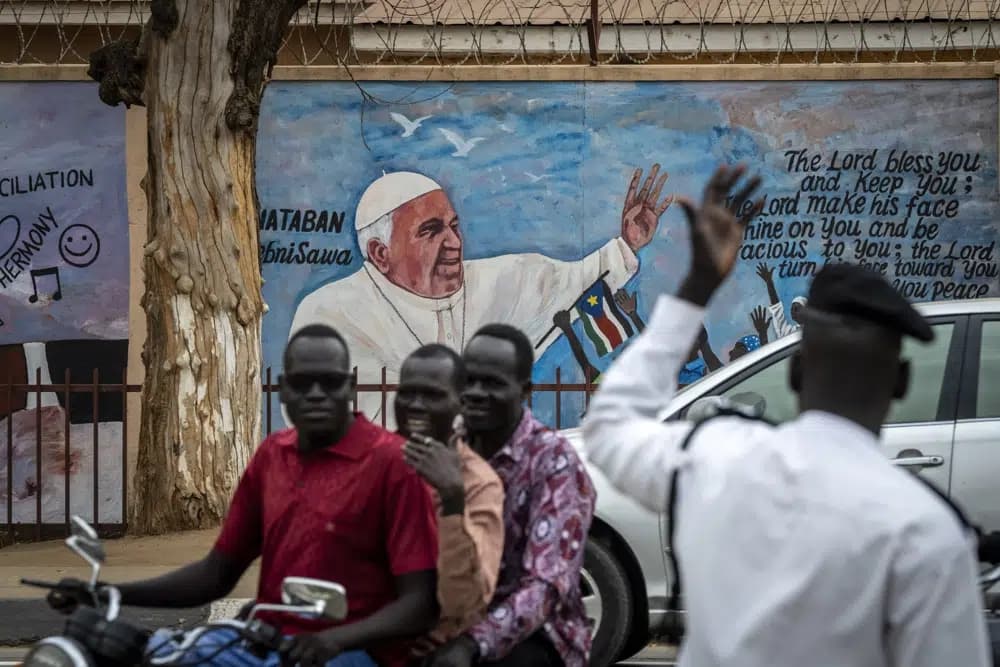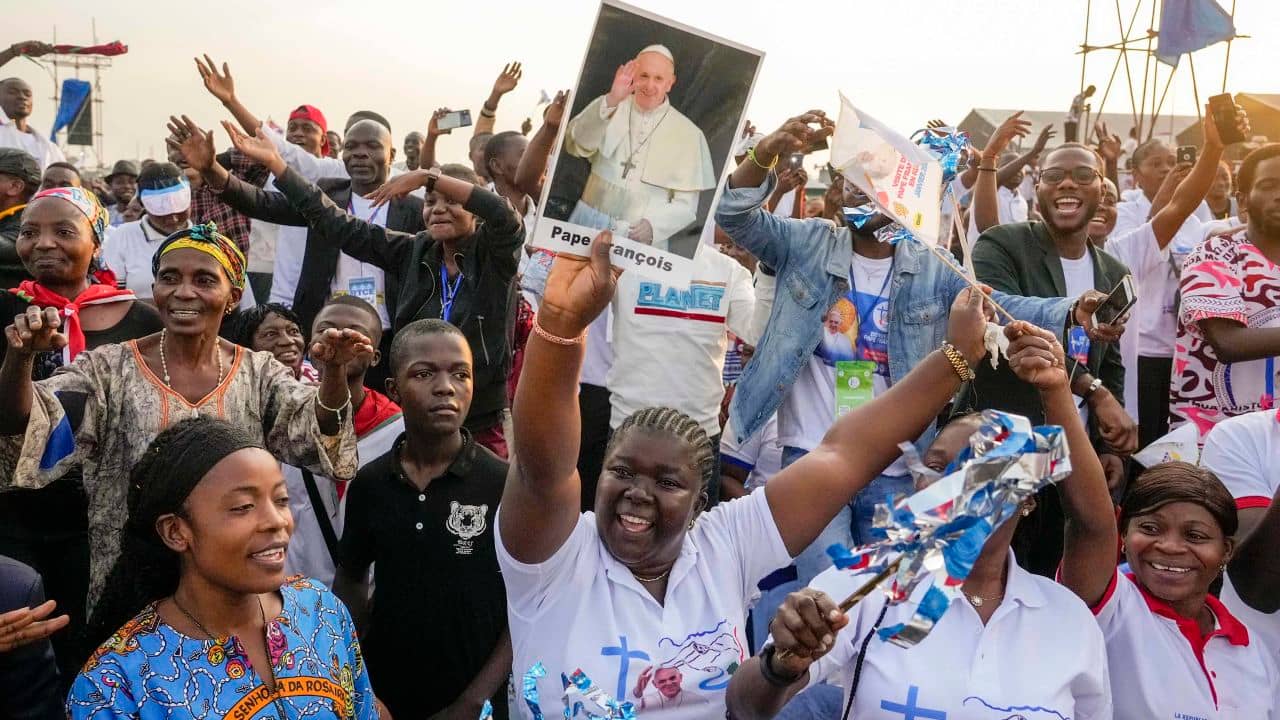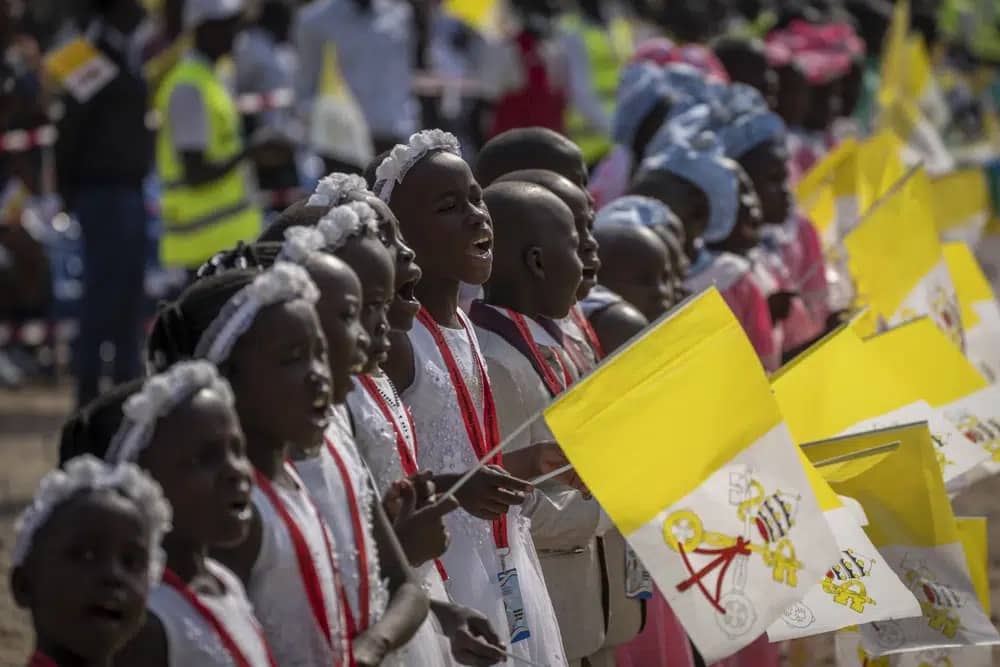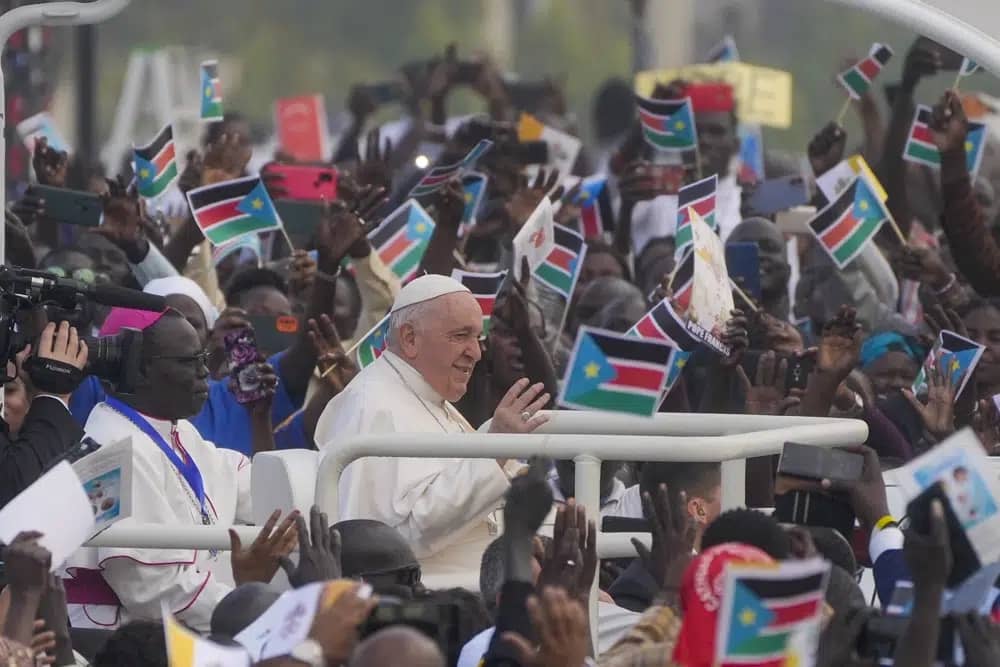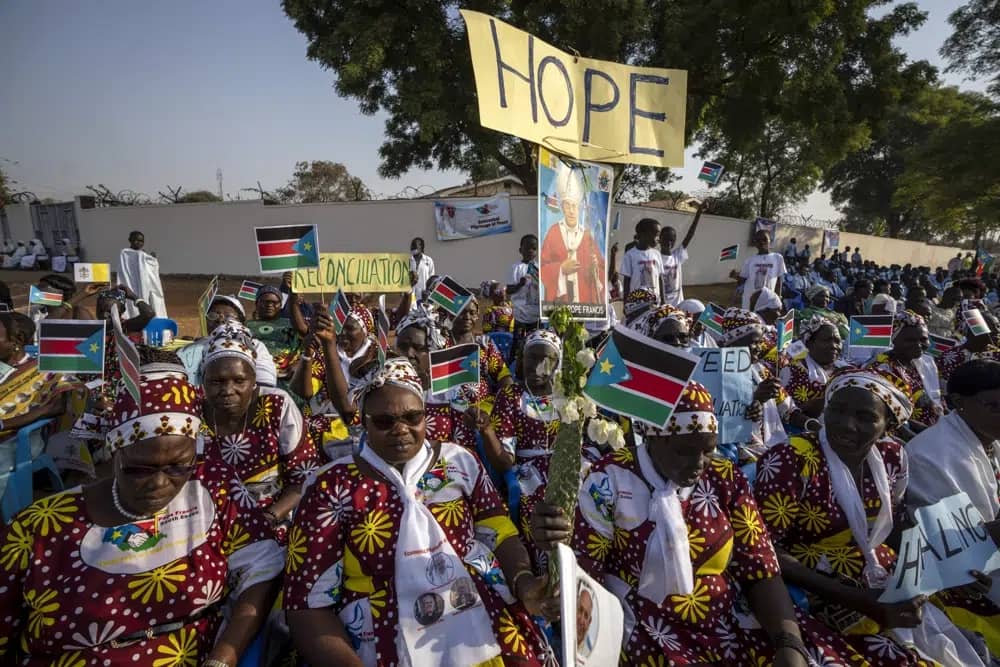JUBA – As Pope Francis arrived in Juba, offering a blunt opening speech condemning the country’s leaders for ongoing delays in the national peace process, diplomats and those engaged in humanitarian efforts said they had high hopes that his visit would lead to real change.
The pope arrived in South Sudan Friday on the second leg of a 6-day trip that began in Kinshasa, in the Democratic Republic of Congo, in a bid to comfort and encourage countries ravaged by years of violent conflict and to a “colonialist mentality” among wealthy nations that have exploited Africa for decades.
Francis is making the visit alongside two other faith leaders, the Archbishop of Canterbury, Justin Welby, and the Moderator of the Church of Scotland, Iain Greenshields.
Together, Christians make up roughly 60.5 percent of South Sudan’s population of over 11 million, with Catholics comprising some 52 percent of all Christians in the nation.
RELATED: In Congo, South Sudan, Pope will see the Church on the frontlines
In his frank opening speech, Pope Francis – who together with Welby and Greenshields have long been involved in mediating South Sudan’s peace talks – referred to ongoing delays in implementing the country’s 2018 peace agreement, saying violence continues as “the process of reconciliation seems stagnant and the promise of peace unfulfilled.”
Likewise, Welby in his opening address to authorities said he was “sad” and disappointed at the lack of progress, telling leaders he expected more, and that “you promised more.”
Asked about what impact the pope’s visit with Welby and Greenshields was likely to have, Adeyinka Badejo, who works at the United Nations embassy in South Sudan and who was present for the pope’s opening speech to civil authorities, told Crux that everyone is hoping for “a positive change.”
Badejo was optimistic, saying she believes the trip “will make a big impact,” and that she was glad the pope was engaging the country’s leaders, who she said, “have the obligation to change.”
“People need peace, desperately,” she said, voicing hope that the visit and the pope’s message would serve as a reminder to national leaders of “why they fought for independence.”
“I believe and hope it will bring change…I hope it will be a pivotal moment to get back on track,” she said.
Juliet Murekeyisoni, who works with the UNHCR, the United Nations Refugee Agency, likewise told Crux that she is optimistic about the impact the trip would have, saying, “South Sudan is experiencing so many challenges,” and the presence of the Christian leaders “brings hope to the people.”
With some two million people internally displaced, many of whom have been displaced several times, and countless children who lack education and suffer from malnutrition, South Sudan is still a country in desperate need of frontline humanitarian support.
Recent flooding has further exacerbated the situation, leaving dozens dead and countless farms ruined in what many fear is a crisis that could increase tensions and worsen violence as people become more desperate to survive and provide for their families.
Peter Dorbes with the International Committee of the Red Cross (ICRC), said he does not believe South Sudan’s violence is based in “an ethnic and tribal conflict,” but is rather rooted in “a fight for survival and resources.”
People need jobs and to support their families, he said, telling Crux that he believes most of the ongoing fighting stems “from poverty,” and that violence in the country “is economic,” as people starve and see their children becoming increasingly malnourished.
“We see suffering every day, my God,” he said, saying the symbolism of the pope’s visit is powerful, and “we need this message of hope…we need a message of peace.”
Asked whether people still have confidence in the ability of the South Sudan’s national leadership to achieve peace and get the country back on track, Dorbes said many people “have lost hope,” having been displaced multiple times and having seen family members killed before their eyes with poverty becoming worse.
The country’s leaders “are pleased by the pope’s visit, it’s what they need to regain legitimacy in the eyes of the people,” he said. Yet despite an apparent loss of faith in their leaders, Dorbes said he doesn’t see South Sudan “stuck in a war for decades.”
People are ready for change, he said, voicing his belief that the pope’s advocacy has contributed to the peace process, and he has great influence as “a voice for peace, a voice for tolerance,” and unity.
“One of the highest moral authorities in the world” has come to South Sudan, he said, saying, “The mere symbol of bringing hope is already an accomplishment.”
Murekeyisoni was more optimistic, saying “some positive movement” has been made, such as the country’s roadmap to implementing the 2018 peace agreement, which, among other things, extends the current transitional period by 24 months, outlining a step-by-step process to writing a national constitution, forming a unified national army and holding national elections.
Peter Voner-Auweraert, who works with the International Organization for Migration (IOM), told Crux that the roadmap has provided benchmarks for national leaders, and he voiced hope that the pope’s visit “can help them move forward.”
“Those in leadership hope the pope’s visit and words will have an impact” on what direction to take going forward,” he said, saying the mere fact that the pope has come has given South Sudanese people “hope for the future.”
“There is a lot of violence still, I hope the pope will encourage leaders” to continue their peace efforts, Voner-Auweraert said, saying “South Sudan is a society with different interpretations of what he says, so we’ll see” how the pope’s message is spun.
“The excitement is palpable. People don’t have a lot of good things that happen to them,” he said, so the visit is a strong sign of hope.
Follow Elise Ann Allen on Twitter: @eliseannallen
